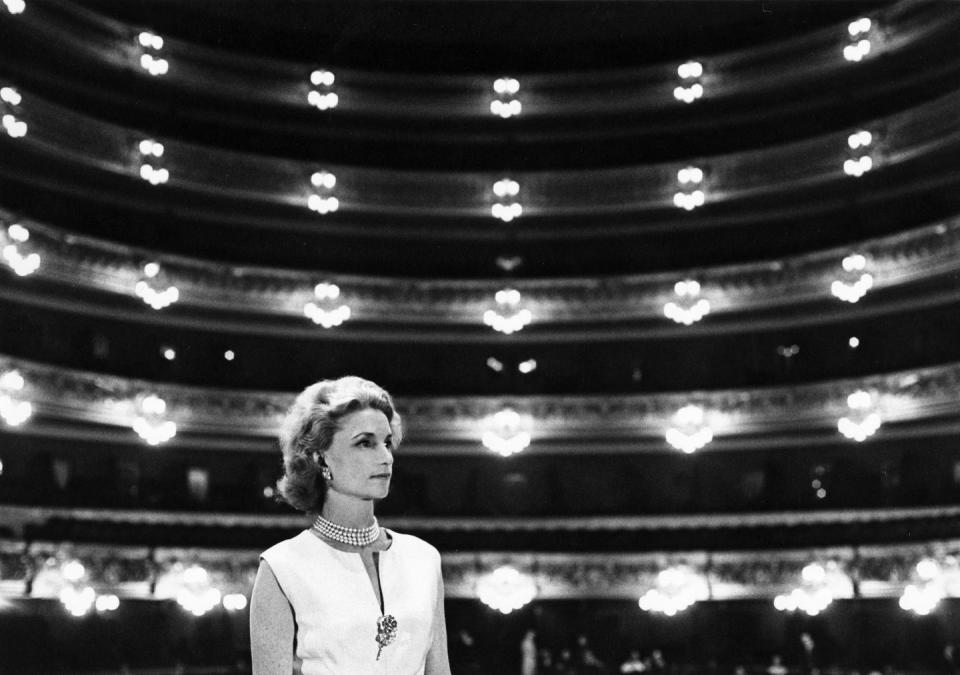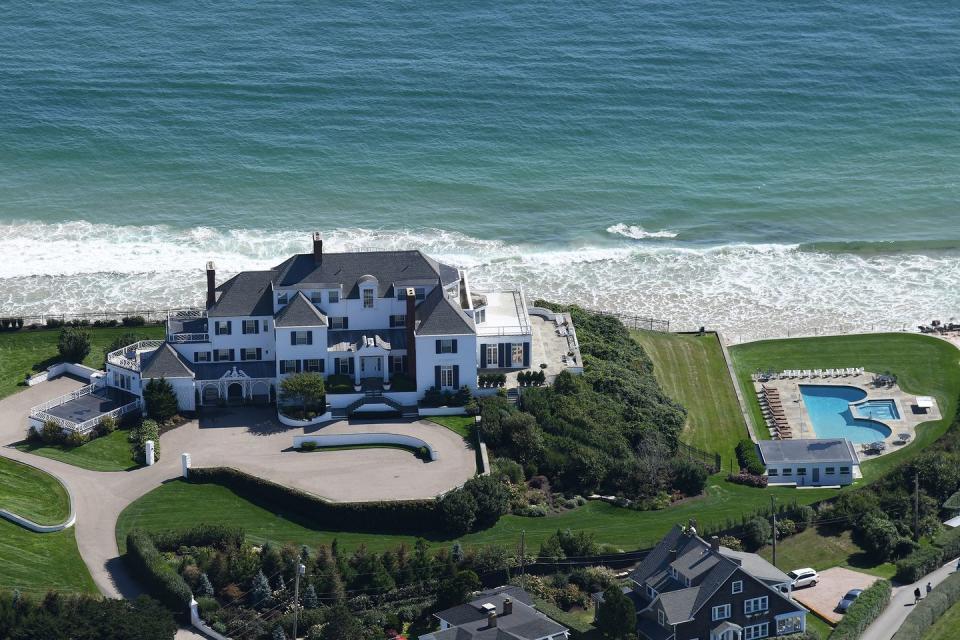Who Is Rebekah from Taylor Swift's "The Last Great American Dynasty"?

Unless you are entirely disconnected from the Internet, you know that Taylor Swift released a brand new, surprise album last night. This album marks a departure for Swift, not only in the music itself—these songs have a distinctly moody, indie tone—but also in Swift's storytelling. Part of the theory behind "folklore" is that these songs test the boundaries of self, as Swift writes about historical figures, fictional characters, and her own life, dissolving the lines between those stories.
"I found myself not only writing my own stories, but also writing about or from the perspective of people I've never met, people I've known, or those I wish I hadn't," Swift wrote in a recent Instagram post.
One song, "the last great american dynasty" exemplifies this new style of songwriting, as it tells the story of 20th century American socialite Rebekah "Betty" Harkness. Rebekah married William Hale Harkness, the heir to the Standard Oil fortune. Together, the pair resided in Rhode Island, in a home called "Holiday House" that Swift now owns. Here, we explore who Rebekah was, and why she captured Swift's attention.
Harkness, fittingly, belonged to an American dynasty.
Though Rebekah grew up in a wealthy St. Louis family, her social status was elevated when, after her first divorce, she married William "Bill" Hale Harkness, the son of William Lamon Harkness and the heir to the Standard Oil empire.

Swift illustrated this union with her lyrics, "Bill was the heir to the Standard Oil name and money / And the town said, 'How did a middle-class divorcée do it?' / The wedding was charming, if a little gauche / There's only so far new money goes."
Though William died in 1954 after just seven years of marriage, Rebekah kept her last name and status, and proceeded to become legend among the East Coast upper crust.
The Harknesses were previous owners of Swift's Rhode Island estate.
It's safe to assume that what drew Swift to Rebekah in the first place was their shared residence. After their marriage, Rebekah and Bill bought an oceanfront home in Watch Hill, Rhode Island, which they named "Holiday House." Ever social, the couple hosted countless raucous parties at the home.
Swift sings, "They picked out a home and called it "Holiday House" / Their parties were tasteful, if a little loud."

Even after Bill died, Rebekah remained in the home and her life in Holiday House became the stuff of legend. Her son Allen, who was interviewed by The New York Times after her death, described the crowd as "all the fairies flying off the floor, the blackmailing lawyers, the weirdos, the people in the trances."
One could describe Rebekah in many ways, but never boring: Harkness associated with the likes of Andy Warhol, J.D. Salinger, and Alvin Ailey. She filled the estate's pool with Dom Perignon. Harkness had a strained relationship with her children, building additions to her home so she could see them as little as possible. She was patron of her own failing ballet company, the Harkness Ballet. She married four times, with her last husband twenty years her junior. She once dyed a cat lime green.
Swift compares herself to Harkness.
Rebekah was not a person most people would want to emulate. Notably, when her younger daughter, Edith, died by suicide, Harkness' simple response was, "I can't believe it took her this long to succeed."
While Swift is clearly not a Rebekah clone, she does draw some similarities between herself and her home's previous owner towards the end of "the last great american dynasty."
Swift caused quite the stir when moved into Holiday House, filling the beaches with paparazzi and the estate with celebrities. (Who can forget those 4th of July parties?) Locals were concerned the pop superstar would disrupt the quiet seaside town, which, in some ways, she did.
The other piece of it, though, is about reputation (also, of course, the name of Swift's 2017 album). The idea of a "mad woman" haunting an estate, bringing in men and causing controversy. How quickly society judges those that live lives different from the norm.
"Holiday House sat quietly on that beach / Free of women with madness, their men and bad habits / And then it was bought by me," Swift sings.
Rebekah died of cancer in 1982.
Her ashes were placed in a $250,000 urn created by Salvador Dalí. The Rhode Island estate sat empty for years, until Swift's arrival. While the hubbub surrounding Swift's presence in the beach town has since died down, the pop star ends her song by subverting her own lyrics, turning the Rebekah narrative onto herself.
She sings, "Who knows, if I never showed up, what could've been / There goes the loudest woman this town has ever seen / I had a marvelous time ruining everything."
You Might Also Like


